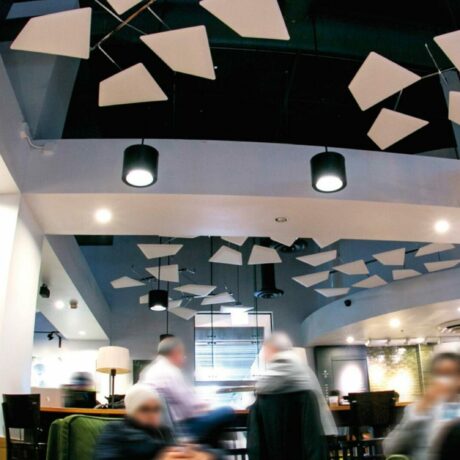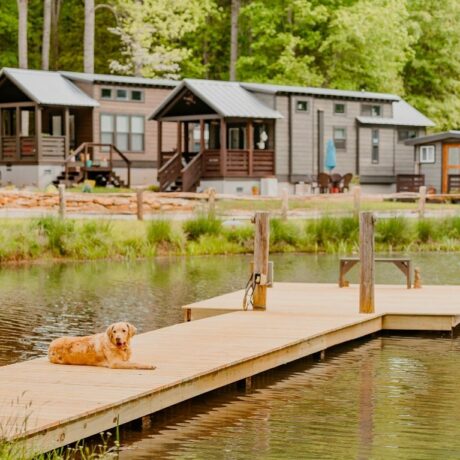
Adam Gower Ph.D. is an authority on content marketing and online communications for the real estate industry. [email protected]
The COVID-19 outbreak has affected nearly every industry in the United States, but perhaps the one that has been impacted the most has been the hospitality community. Between limited travel, new legal restrictions, and a generally slowed-down economy, many hotels have been forced to make the tough choice between closing down entirely or operating with significantly fewer guests (and possibly, additional expenses). As STR’s Senior Vice President, Vail Ross, describes, “from a demand standpoint, it’s down significantly.” In fact, according to estimates from April, demand may be down as much as 68 percent. For hotels, most of which require at least a 55 percent average occupancy rate in order to remain financially viable, this sudden drop in demand has created myriad financial challenges

Insights
Occupancy was down 63.9% overall to 24.5% in April
Room Demand collapsed by 68.3%
Average Daily Rate nationwide is down 44.4% to $73/night
The crucial RevPAR measure collapsed 79.9% to $18
And room revenue overall down 82.4%
Watch the entire conversation with Vail here.
Access the transcript here.
However, while there is no denying that the current drop in interested guests is a widespread industry issue, there seems to be at least one silver lining: the demand for new hospitality construction has remained largely uninterrupted. Across the United States, new construction for the hospitality industry, most of which has been planned for months or even years, is still going on as planned.
“All of the hotels that are currently under construction have not slowed down whatsoever,” explains Ross, “We have actually exceeded our prior peak back in 2008, just before the financial crisis.”
To some, continuing with these projects might be considered somewhat risky, especially if the recovery from the current economy is slower than expected. However, “the confidence that this asset class does have from an investment community” says Ross, is one of the reasons the projects in-progress are still considered financially viable, “the funding is already there. The labor is there.” Hospitality investors have recognized long-term trends and though the current financial situation is almost unprecedented, these trends can still be expected to eventually resume.
Some of the subsectors of the hospitality industry currently hurting the most include boutique (generally small) hotels, destination stays, with opportunities emerging that involve the creative reuse of already existing hotels that may have become functionally or financially obsolete due to the pandemic.
However, even with this apparent silver lining, most hotel financiers are anticipating that recovery will still take some time. “It wouldn’t be a surprise if we didn’t see occupancy rates return to their previous levels until 2024, maybe 2025,” Ross explains.
Factors such as a changing economy, hesitance from the public, and people’s desire to see new places after staying at home for extended periods of time, can all make the profitability of these endeavors difficult to project. Unsurprisingly, the firms that are able to be flexible and adapt to a constantly changing landscape are the ones that will be best positioned for success.
“We’ve seen the brands be quite creative with getting some cash flow and that these hotels are operating on skeleton crews, doing what they can to remain open,” Ross says, admiring the adaptability her firm has noticed throughout the industry, “They know that as soon as things start to open back up, they can begin to ramp up.”
Across the industry, hotels have also noticed a need for new marketing strategies, shifting marketing budget into digital campaigns has proven to be particularly effective. Emphasizing safety and cleanliness, using social media and other outreach strategies, and working with essential workers have all helped certain brands reach their target audience. According to Ross, “The brands have done a phenomenal job in coming up with these campaigns and really humanizing ads.”
In Nashville, one of the creative ways Ross has seen people adjusting to this crisis has involved “drive-in” music night. A local hotel is hosting a stage in their parking lot where singer songwriters play and people drive in to watch, staying in their cars to listen to the music. The hotel puts on curb delivery of food and drinks or visitors can bring their own and everyone is asked to make a donation to the songwriter. It is a way to get people out again in a safe way, supporting the community and oftentimes some of the proceeds go to first responders.
These shows, and other creative alternatives like them, help demonstrate the hospitality industry’s unique ability to adapt to sudden changes. Demand, in every industry, is constantly changing. If suppliers (hotel developers) can adapt their models in order to address these changes, whether caused by a viral outbreak or not, they can continue to find success in unexpected places. (Learn more at www.gowercrowd.com)




